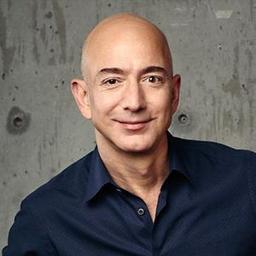282 Quotes
"Just as the internet pushed distribution costs to zero, AI will push creation costs toward zero."
— Evan Armstrong
6 New Theories About AI"The economic value from AI will not be distributed linearly along the value chain but will instead be subject to rapid consolidation and power law outcomes among infrastructure players and end-point applications."
— Evan Armstrong
6 New Theories About AI"Since so many of these models train on similar data sets and the math is all widely available, the only thing holding these companies back is compute power. Essentially anyone can build a copycat if they have sufficient skills and resources."
— Evan Armstrong
6 New Theories About AI"Open source also puts downward pricing pressure on model providers that sell access to their model via API. When you’re competing with free, you almost always have to compromise by being cheap."
— Evan Armstrong
6 New Theories About AI"Fine-tuned models win battles, foundational models win wars"
— Evan Armstrong
6 New Theories About AI"Long-term model differentiation comes from data-generating use cases"
— Evan Armstrong
6 New Theories About AI"Open source makes AI startups into consulting shops, not SaaS companies"
— Evan Armstrong
6 New Theories About AI"Rapid success followed by the rapid emergence of copycats will hold true for other companies."
— Evan Armstrong
6 New Theories About AI"A lot of the purchasing decision ends up being driven by GTM strategy instead of pure vendor comparison. The question of which “AI” startup wins their endpoint is more a matter of sales and marketing and vibe than model performance."
— Evan Armstrong
6 New Theories About AI"AI is marketing gas. People are hungry for products that can perform these tasks. However, the winners will be determined by software questions, not AI ones."
— Evan Armstrong
6 New Theories About AI"For those startups that are competing on the basis of SaaS, the competitive advantage goes toward companies that already have inherent distribution or product capabilities. It would be much easier for a large company to integrate AI into their existing products than for startups to build competitive full-suite products from scratch."
— Evan Armstrong
6 New Theories About AI"in a world where content is basically free to make, what matters is distribution. Creators who properly utilize AI tools to make better content faster will be able to build a critical mass of fans. The world of digital media is already one where .01% get all the revenue; AI will exaggerate that dynamic even further."
— Evan Armstrong
6 New Theories About AI"Invisible AI is when a company is powered by AI but never even mentions it. They simply use AI to make something that wasn’t considered possible before, but is entirely delightful."
— Evan Armstrong
6 New Theories About AI"Creators and brands are looking to sell additional goods and use Pinterest as a demand aggregator. Remember how the Pinterest Factory tags all of the images and videos with metadata? That’s how the company grows its users and, subsequently, usage. Whenever someone searches for something on Google, Pinterest’s goal is that their images appear at the top of the results. It’s a self-reinforcing growth loop."
— Evan Armstrong
Pinterest Has a Chance"Charge for access (SaaS) Charge for usage (Amazon Web Services) Charge for eyeballs (Facebook, TikTok, Pinterest)"
— Evan Armstrong
Pinterest Has a Chance"Pinterest should be the perfect platform for ads since people are on there explicitly to find goods. Despite that theoretical fit, Pinterest’s monetization has been abysmal."
— Evan Armstrong
Pinterest Has a Chance"The most lucrative/performative ad to sell is one that appears right when a user has the intent to buy."
— Evan Armstrong
Pinterest Has a Chance"Pinterest isn’t in the best spot for this value proposition. Their specific use case is discovery, not purchasing."
— Evan Armstrong
Pinterest Has a Chance"Pinterest isn’t a shopping destination––it’s a window-shopping experience. The difference between doing this flow and doing it with a broader search bar like Google is the engagement modality."
— Evan Armstrong
Pinterest Has a Chance"The biggest takeaway from Patterson’s continued success is that he understands what he has. He isn’t creating art. He isn’t creating something to elevate the world’s consciousness, he has a product and he is willing to sell the hell out of it."
— Evan Armstrong
The AI Writer"Ultimately, economic incentives have become totally inseparable from the art that is being created. I would argue that the market is the message. Market dynamics (such as the advertising channels that drive sales) determine what kind of content is being created."
— Evan Armstrong
The AI Writer"you could break down the core activity of any business into three buckets: Creation, Acquisition, and Distribution."
— Evan Armstrong
The AI Writer"Distribution was no longer reliant on getting on the right bookshelves or catalogs. The way to win was to be the first to surface in Amazon’s search bar. It was the long tail that won."
— Evan Armstrong
The AI Writer"the Kindle launch in 2007 made things even more complicated. Suddenly distribution costs truly were zero. Authors could only compete on their acquisition method or on their content. It diminished the role of publishers and by 2013, ¼ of book sales on the Kindle were from independent authors."
— Evan Armstrong
The AI Writer"BookTok is one of the most popular communities on TikTok with over 77B views globally."
— Evan Armstrong
The AI Writer"Because TikTok’s recommendation algorithm is so good, the books tend to do well. It has gotten to the point that retailers like Barnes and Noble have press releases about it and Indigo (a Canadian bookseller) even mentioned the power of BookTok on their earnings call."
— Evan Armstrong
The AI Writer"If we have learned anything from constructing algorithmic recommendation feeds over the last 10 years of consumer internet, it is that the content sludge becomes the most popular."
— Evan Armstrong
The AI Writer"when every category of content is economically incentivized to make stuff that performs well with the algorithm, monetary gravity pulls us towards sludge. It is the Pattersonification of everything. Some higher forms of art will still break through, but the statistical average is shifting towards stupid."
— Evan Armstrong
The AI Writer"The important thing is that the holders of the keys of consumer attention have shifted from the New York Times and Oprah’s book club—it is now the algorithms."
— Evan Armstrong
The AI Writer"the power dynamic has completely shifted. To be a successful author means writing the kind of book people want to share within the context of the internet."
— Evan Armstrong
The AI Writer"There are similar tools to Sudowrite for every manner of writing—no content job is truly safe. Note: In 10 years will I look at this post as the obituary of my career? Regardless of genre, most of these tools are powered using GPT-3 from OpenAI."
— Evan Armstrong
The AI Writer"Soon it will be mega-prolific authors, with carefully tuned TikTok plots, planting ads all over attention aggregators like Amazon who are the winners."
— Evan Armstrong
The AI Writer"For the most part, technology has democratized creativity and allowed more total volume of people to be artists, not less. Whether these tools are net good for us all or not, they likely spell doom for the writer archetype of yesteryear."
— Evan Armstrong
The AI Writer"TL;DR Because 99% of creator revenue accumulates at the top .01% of creators, creator economy startups have to find a way to justify taking a % of revenue."
— Evan Armstrong
How Startups Can Survive the Creator Economy Winter"The difference between the two will come down to how well these startups are able to answer one question: what are you doing to earn revenue share?"
— Evan Armstrong
How Startups Can Survive the Creator Economy Winter"A report from Linktree pegs the total number of creators at ~200M. Another report by Kajabi puts it at 50M+. (Much of the difference is determined by how you determine the split between social media user and “creator”)."
— Evan Armstrong
How Startups Can Survive the Creator Economy Winter"Startups serving creators face multiple challenges around customer concentration, the importance of demand aggregation, and the low earnings of the creator middle class."
— Evan Armstrong
How Startups Can Survive the Creator Economy Winter"99% of creators won’t generate meaningful revenue"
— Evan Armstrong
How Startups Can Survive the Creator Economy Winter"In contrast, over 90% of the gains accumulate with the top .01% of creators."
— Evan Armstrong
How Startups Can Survive the Creator Economy Winter"In my own experience as a creator, and in my discussions with over 100 creators in the past year, every creator has had the same desire: more fans. The hunt for new fans is the most challenging and draining aspect of the work."
— Evan Armstrong
How Startups Can Survive the Creator Economy Winter"The only companies with robust consumer demand aggregation efforts are the social giants. Youtube’s recommendation algorithms, Twitter’s trending topics, and Facebook’s recommended pages are the most powerful agents in Hollywood."
— Evan Armstrong
How Startups Can Survive the Creator Economy Winter"“As a good rule of thumb, proprietary technology must be at least 10 times better than its closest substitute in some important dimension to lead to a real monopolistic advantage. Anything less than an order of magnitude better will probably be perceived as a marginal improvement and will be hard to sell, especially in an already crowded market.”"
— Evan Armstrong
How Startups Can Survive the Creator Economy Winter"According to the same Linktree survey I mentioned earlier, only 12% of full-time creators are making more than $50,000 per year, and 46% of the same cohort makes less than $1,000 a year. Even more brutally, 66% see this as a side-hustle."
— Evan Armstrong
How Startups Can Survive the Creator Economy Winter"Regardless of which cohort of creator a startup is serving, the interesting thing is that the creators make money with identical methods: ads and gated access."
— Evan Armstrong
How Startups Can Survive the Creator Economy Winter"Contrary to popular belief, ads are a beautiful thing! They allow content to be offered for free, increasing distribution for the creator. They also scale beautifully—whether you have 100 subscribers or a million, there is an ad product for you."
— Evan Armstrong
How Startups Can Survive the Creator Economy Winter"Ads can introduce perverse incentives to grow the top of the funnel at all costs even if they have negative externalities."
— Evan Armstrong
How Startups Can Survive the Creator Economy Winter"A well-run ad-exclusive company will typically see roughly $10-$20 in annual revenue per user. On the subscription side, conversion rates at the very best content shops are somewhere between 5-10%."
— Evan Armstrong
How Startups Can Survive the Creator Economy Winter"The startups serving these creators must be hyper-aware that their customers are not as numerous as they would like, and will be unable to pay enough in subscription fees to build a traditional SaaS startup."
— Evan Armstrong
How Startups Can Survive the Creator Economy Winter"On an average day in the stock market, the typical high-growth SaaS stocks trade at ~20x sales. If your goal is to build a $5B creator economy business, you’ll need ~$250M in ARR to make that happen."
— Evan Armstrong
How Startups Can Survive the Creator Economy Winter"Currently, the company that is the best at using revenue share to its advantage is Youtube. They take 45% of the ad revenue for themselves and give the other 55% to the creator. While many creators feel this take rate is too high, it is actually the best in the business because the company performs a dual role of aggregation—aggregating both demand and advertiser supply."
— Evan Armstrong
How Startups Can Survive the Creator Economy Winter"if a startup is unable to gain significant revenue share from creators, they can invert their vertical software serving creators exclusively towards a more horizontal platform serving businesses generally."
— Evan Armstrong
How Startups Can Survive the Creator Economy Winter"The wave of people leveraging the internet to fund their passions isn’t going anywhere."
— Evan Armstrong
How Startups Can Survive the Creator Economy Winter"In May of 2022, I argued that we were about to enter into a creator economy winter."
— Evan Armstrong
What Happened to the Creator Economy? "Specifically, I forecasted that because only the top 1% of creators make any real money, a startup would have to either 1) capture a percentage of their biggest customer’s revenue or 2) find a way to sell to the long tail of part-time creators"
— Evan Armstrong
What Happened to the Creator Economy? "First, creator economy funding crashed. Dollars invested are down 86% to $123M."
— Evan Armstrong
What Happened to the Creator Economy? "The giants of the space have had issues: Patreon laid off 17% of staff, Linktree first sacked 17% of staff, then a few months later another 27%, Cameo has laid off 160 (probably 33%+ of staff), Substack laid off 14%, on and on."
— Evan Armstrong
What Happened to the Creator Economy? "In my opinion, the creator economy thesis fell apart because investors had a fundamental misunderstanding of what risks they were underwriting."
— Evan Armstrong
What Happened to the Creator Economy? "They didn’t understand the media industry, they didn’t understand creators’ needs, and they totally missed that this was a vertical SaaS bet."
— Evan Armstrong
What Happened to the Creator Economy? "A creator is a small business that is also a media company (aka shit squared)."
— Evan Armstrong
What Happened to the Creator Economy? "when evaluated as a business, a creator has four distinct advantages relative to ye olde small and medium business."
— Evan Armstrong
What Happened to the Creator Economy? "Low cost of goods sold and operating costs: A creator makes all their product themselves, with the only costs being their time and a laptop."
— Evan Armstrong
What Happened to the Creator Economy? "Zero marginal transaction costs: The cost of adding one more email subscriber to this newsletter is essentially zero."
— Evan Armstrong
What Happened to the Creator Economy? "Internet creators, on the other hand, mostly distribute their product through the web platforms (YouTube, Facebook, TikTok) and these platforms want to make it as easy as possible for you to upload."
— Evan Armstrong
What Happened to the Creator Economy? "Consumer preference: Some studies show that consumers like individuals more than brands."
— Evan Armstrong
What Happened to the Creator Economy? "The power law is the only law of the internet: 99% of the value accrues to the top accounts and the rest is distributed over the population of the planet."
— Evan Armstrong
What Happened to the Creator Economy? "From my article last year, “According to a Linktree survey, only 12% of full-time creators are making more than $50,000 per year, and 46% of the same cohort makes less than $1,000 a year."
— Evan Armstrong
What Happened to the Creator Economy? "The real winners of the creator economy are the attention and advertising aggregators."
— Evan Armstrong
What Happened to the Creator Economy? "YouTube did $29.24B in revenue in 2022 which is more revenue than Pinterest, Snapchat, Twitter, and every creator economy startup on the planet combined."
— Evan Armstrong
What Happened to the Creator Economy? "The companies who capture the majority of the value are the ones selling things all creators need: distribution and monetization (Google, Facebook, Twitter) or creation technology (Apple, Sony)."
— Evan Armstrong
What Happened to the Creator Economy? "Plus the things that matter most (creation, monetization, and distribution) are best served by the biggest and baddest tech companies in the world."
— Evan Armstrong
What Happened to the Creator Economy? "Creators' costs are already so low that it is really, really hard for a Substack or a Patreon value proposition to be “save them money.”"
— Evan Armstrong
What Happened to the Creator Economy? "The most successful creator economy startup is OnlyFans. They won because they gave adult entertainers a platform to monetize their work. This was a case where the major existing platforms wouldn’t work with them—the Facebooks of the world—but there was enormous consumer demand for porn products."
— Evan Armstrong
What Happened to the Creator Economy? "Other successful startups have followed that pattern—Substack allowed writers to easily charge for newsletters (and now offers some demand aggregation)."
— Evan Armstrong
What Happened to the Creator Economy? "The startups that have scaled are the ones that support creators or products that big tech hasn't bothered to care about (yet). It is in the margins, the niches of monetization that these companies have succeeded."
— Evan Armstrong
What Happened to the Creator Economy? "My sense is that companies were planning for a “middle class” of creators to appear."
— Evan Armstrong
What Happened to the Creator Economy? "The early winners of the creator economy startups were the ones who solved immediate, big needs that were totally ignored by major platforms."
— Evan Armstrong
What Happened to the Creator Economy? "What hasn’t really worked are the companies trying to do everything else."
— Evan Armstrong
What Happened to the Creator Economy? "When a startup is “building tools for the creator economy” what they are actually building is a vertical SaaS startup. A vertical SaaS company has to serve the needs of an industry 10x better than a horizontal tool meant for all SMBs ever could."
— Evan Armstrong
What Happened to the Creator Economy? "So many of the startups that got funded over the last few years have been direct competitors to existing horizontal SMB SaaS solutions without any real validation that there was a distinct, creator-specific need."
— Evan Armstrong
What Happened to the Creator Economy? "The creator economy has so many macroeconomic factors working against it that I bet we will see fewer than five startups serving back-office needs actually make it in the long run."
— Evan Armstrong
What Happened to the Creator Economy? "The most significant consequence of the internet was that it pushed distribution costs to zero."
— Evan Armstrong
When Content Creation Goes to Zero"The most significant consequence of AI is that it will push creation costs to zero."
— Evan Armstrong
When Content Creation Goes to Zero"The atomic activity of any company can be boiled down to: Create stuff Acquire customer to buy stuff Distribute that stuff"
— Evan Armstrong
When Content Creation Goes to Zero"The internet broke the third category of distribution, and AI is going to break the first one. Innovations like GPT-3, DALL-E, and other AI tools will dramatically decrease the cost of producing goods with a digital component."
— Evan Armstrong
When Content Creation Goes to Zero"The biggest question is this: When acquisition is the only thing left to compete for, what does our economy look like?"
— Evan Armstrong
When Content Creation Goes to Zero"Truly disruptive technology companies pair novel tech with unique market conditions."
— Evan Armstrong
When Content Creation Goes to Zero"Technology alone isn’t sufficient; a company needs to also have incredible marketing, beatable competitors, and the right team. If one of those things is missing, the whole enterprise will fail."
— Evan Armstrong
When Content Creation Goes to Zero"For most existing technology companies, these tools will only cement their market position."
— Evan Armstrong
When Content Creation Goes to Zero"I’m more bullish on startups that act as infrastructure providers for other companies."
— Evan Armstrong
When Content Creation Goes to Zero"My biggest (and perhaps most controversial) hypothesis is that these tools will end up being more disruptive for individual workers than for companies."
— Evan Armstrong
When Content Creation Goes to Zero"Creation: We make stuff from scratch that entirely replaces products that previously would’ve required human input."
— Evan Armstrong
When Content Creation Goes to Zero"Collaboration: Humans are paired with an AI tool to vastly improve and speed up their workflows."
— Evan Armstrong
When Content Creation Goes to Zero"As always in the technology sector, new innovations enforce a power law dynamic where power becomes concentrated in the hands of the elite."
— Evan Armstrong
When Content Creation Goes to Zero"distribution costs being at zero had a greater impact on society than some niche technology categories."
— Evan Armstrong
When Content Creation Goes to Zero"The internet has altered how we coordinate physical labor, from peer-to-peer connections to marketplaces."
— Evan Armstrong
When Content Creation Goes to Zero"This shift occurred because once you build a digital good or coordination mechanism, you can essentially scale it for forever, for free, with only acquisition costs to worry about."
— Evan Armstrong
When Content Creation Goes to Zero"Similarly, when AI automates content creation costs to zero, the effects will be far-reaching. More and more power will accrue in those companies that have novel acquisition methods that do no rely on any gatekeeper."
— Evan Armstrong
When Content Creation Goes to Zero"I’ll also be watching to see how AI affects product design itself. Arguably, the winning products will be those that feed the best data into their AI models."
— Evan Armstrong
When Content Creation Goes to Zero"This dynamic will reward the products that can be redesigned to have better training inputs."
— Evan Armstrong
When Content Creation Goes to Zero"In 1964, communication theorist Marshall McLuhan famously quipped that “the medium is the message.” I’m starting to wonder if this is outdated. If the algorithm is determining what medium is successful, who owns responsibility for the message?"
— Evan Armstrong
When Content Creation Goes to Zero"The biggest impact of AI is that it will fundamentally change our relationship with content itself. What is real, what is fake, what is made just for us—distinguishing between them will be murkier than before."
— Evan Armstrong
When Content Creation Goes to Zero"“I’m like 99% sure Pornhub’s acquisition is a scam.”"
— Evan Armstrong
We Don’t Know Enough About the Pornhub Acquisition"Given Pornhub’s reach, regulators should be paying closer attention"
— Evan Armstrong
We Don’t Know Enough About the Pornhub Acquisition"Pornhub had over 2B visits last year and 100M+ daily active users. Visitor’s average time on site is 9 minutes and 54 seconds."
— Evan Armstrong
We Don’t Know Enough About the Pornhub Acquisition"Meaning that in 2022, a grand total of ~38,026.51 years of time was spent at this URL."
— Evan Armstrong
We Don’t Know Enough About the Pornhub Acquisition"An AI recommendation algorithm will tailor the experience for each user, trapping them in webs of personalized content."
— Evan Armstrong
We Don’t Know Enough About the Pornhub Acquisition"Whoever owns this website will not only have a direct influence over the state of sex trafficking globally but will also hold the emails, credit card numbers, and most private browsing habits of tens of millions of people. So, this deal matters beyond mere intellectual curiosity."
— Evan Armstrong
We Don’t Know Enough About the Pornhub Acquisition"Not only are the employees and advisors involved baffling, but the fund isn’t registered in U.S. or Canadian investment registration databases. Canada doesn’t require private equity funds to register, but many funds still do for the sake of transparency."
— Evan Armstrong
We Don’t Know Enough About the Pornhub Acquisition"So in summary: a fund that feels fake staffed with complete technology and finance noobs bought a company with money that came from somewhere they won’t disclose"
— Evan Armstrong
We Don’t Know Enough About the Pornhub Acquisition"Effectively, this stopped them from being able to receive payments from porn site users via credit cards."
— Evan Armstrong
We Don’t Know Enough About the Pornhub Acquisition"Fast forward to 2023 and the business has become even more bleak. In addition to directly blocking credit card transactions on the site, Visa and Mastercard cut ties with an advertising network that was helping fund Pornhub."
— Evan Armstrong
We Don’t Know Enough About the Pornhub Acquisition"Seller financing: This is when a buyer will do a down payment and then pay for the rest of the acquisition over time with cash flows from the business. Sometimes you’ll have a bank help to facilitate the debt."
— Evan Armstrong
We Don’t Know Enough About the Pornhub Acquisition"Foreign funds can be totally benign. But they can also be devious! There is a reason the SEC exists and American markets are considered some of the least fraudulent in the world."
— Evan Armstrong
We Don’t Know Enough About the Pornhub Acquisition"The most significant consequence of the internet was that it pushed distribution costs to zero. The most significant consequence of AI is that it will push creation costs to zero."
— Evan Armstrong
When Creation Goes To Zero"The internet broke the third category of distribution, and now AI is going to break the first one."
— Evan Armstrong
When Creation Goes To Zero"The biggest question to me is this: when all that is left to compete on is acquisition, what does our economy look like?"
— Evan Armstrong
When Creation Goes To Zero"1) the introduction of transformer models allowed for computers to understand text and 2) an astronomical shit-ton of money and computing power that was unlocked over the last few years."
— Evan Armstrong
When Creation Goes To Zero"It turns out GPUs are great for running deep learning and other machine learning algorithms so whenever the solution to a problem was unclear you could theoretically answer it with “What if we just dumped more compute power into the system.”"
— Evan Armstrong
When Creation Goes To Zero"With the combination of these two step changes, we are now at the point where computers can understand context and then apply that context to a defined set of parameters."
— Evan Armstrong
When Creation Goes To Zero"1. Fine-tuned models win battles, foundational models win wars"
— Evan Armstrong
6 New Theories About AI"In contrast with traditional markets, each building block of the AI chain is intermingled with the other components."
— Evan Armstrong
6 New Theories About AI"This is particularly true in the case of foundational models (models that attempt to do one broad task well, like text generation) versus fine-tuned models (where they tune foundational models to a specific use case, like healthcare text generation)."
— Evan Armstrong
6 New Theories About AI"Fine-tuning makes requests much cheaper for narrow use cases."
— Evan Armstrong
6 New Theories About AI"In the long term, it's not necessarily about fine-tuning beating foundational model performance but more like being deployed for narrow use cases to lower the cost of prompt completion."
— Evan Armstrong
6 New Theories About AI"Fine-tune models can gradually improve over time, while foundational models appear to take step-changes up."
— Evan Armstrong
6 New Theories About AI"2. Long-term model differentiation comes from data-generating use cases"
— Evan Armstrong
6 New Theories About AI"Data loops occur when an AI provider is able to build feedback mechanisms into the product itself and then use that feedback to retrain the model."
— Evan Armstrong
6 New Theories About AI"I think that this will require a model provider to also own the endpoint solution, but I’m open to being wrong on this point."
— Evan Armstrong
6 New Theories About AI"Think of it as power-ranked 3) small, specialized model 2) large general model, and 3) large specialized model."
— Evan Armstrong
6 New Theories About AI"Startups that can capture that model to output to retrain model loop will be able to build a specialized winner."
— Evan Armstrong
6 New Theories About AI"3. Open source makes AI startups into consulting shops, not SaaS companies"
— Evan Armstrong
6 New Theories About AI"For example, DALL-E 2 started with a limited beta that was restricted in its use. When Stable Diffusion, an open-source DALL-E clone, launched, Open AI had to remove the waitlist and usage restrictions within a month."
— Evan Armstrong
6 New Theories About AI"Even all the game makers in the world have woken up to the fact that they need to have AI for their content. That's going to require a white glove service, because you're going to have to continually tune the model as it learns on the new content."
— Evan Armstrong
6 New Theories About AI"However, that tuning has got to be closed. They don't want their IP going out into the world."
— Evan Armstrong
6 New Theories About AI"Open source also puts downward pricing pressure on model providers that sell access to their model via API."
— Evan Armstrong
6 New Theories About AI"When you’re competing with free, you almost always have to compromise by being cheap."
— Evan Armstrong
6 New Theories About AI"OpenAI has circumnavigated this pricing pressure by taking equity stakes in the most promising startups with its $100M venture fund."
— Evan Armstrong
6 New Theories About AI"According to several investment memos I saw, Jasper.AI, a similar AI writing and content tool, went from $0 to ~$40M in ARR within eight months of launching their AI product—a pace would put them on track as one of the fastest-growing SaaS businesses of all time."
— Evan Armstrong
6 New Theories About AI"Soon after their success, a large swath of competitors, all relying on the same open-source or AI models, raised venture funding to pursue similar opportunities."
— Evan Armstrong
6 New Theories About AI"A lot of the purchasing decision ends up being driven by GTM strategy instead of pure vendor comparison."
— Evan Armstrong
6 New Theories About AI"For endpoints selling AI services, they will either need to fully own fine-tuned models or compete on the typical attributes of a SaaS startup."
— Evan Armstrong
6 New Theories About AI"For those startups that are competing on the basis of SaaS, the competitive advantage goes toward companies that already have inherent distribution or product capabilities."
— Evan Armstrong
6 New Theories About AI"I expect every major software provider to integrate generative AI into their products over the next six months."
— Evan Armstrong
6 New Theories About AI"Credible sources have told me that GPT-3’s successor GPT-4 is far beyond what people are expecting."
— Evan Armstrong
6 New Theories About AI"5. AI will not disrupt the creator economy, it will only amplify existing power law dynamics"
— Evan Armstrong
6 New Theories About AI"there are so many of them, creators in aggregate are more likely to make “edgy” content that performs well under algorithmic amplification paradigms."
— Evan Armstrong
6 New Theories About AI"But in a world where content is basically free to make, what matters is distribution."
— Evan Armstrong
6 New Theories About AI"Creators who properly utilize AI tools to make better content faster will be able to build a critical mass of fans. The world of digital media is already one where .01% get all the revenue; AI will exaggerate that dynamic even further."
— Evan Armstrong
6 New Theories About AI"Invisible AI is when a company is powered by AI but never even mentions it."
— Evan Armstrong
6 New Theories About AI"AI at mass deployment breaks many of the mental models for how computing works."
— Evan Armstrong
6 New Theories About AI"AI products can’t simply be model-deployed to existing use cases. AI products win when they enable entire new modalities of digital interactions."
— Evan Armstrong
6 New Theories About AI"Lots of companies do this, but it’s even cooler when you mix those search capabilities with generative AI."
— Evan Armstrong
6 New Theories About AI"There are two types of AI threats. The first is fun to think about: In this threat, a super-potent digital intelligence escapes the intended bounds of its mandate and then wipes out humanity in a robot-overlord, glowing-red-eyed-Arnold-Schwarzenegger doomsday scenario."
— Evan Armstrong
Who Wins the AI Value Chain?"The second threat is an AI that goes right up to the edge of Skynet, but falls short of being an artificial general intelligence."
— Evan Armstrong
Who Wins the AI Value Chain?"Said simply, the second threat is one where an ultra-small set of people make lots of money."
— Evan Armstrong
Who Wins the AI Value Chain?"My personal (working) definition of AI is a machine that can do something beyond rote commands."
— Evan Armstrong
Who Wins the AI Value Chain?"Foundational Model: The compute and data will be combined with some sort of fancy math into some sort of broadly applicable use case"
— Evan Armstrong
Who Wins the AI Value Chain?"Fine Tune: The big foundational model, if not sufficient for a specific use case, will then be tuned for a specific scenario"
— Evan Armstrong
Who Wins the AI Value Chain?"End User Access Point: The model will then be deployed in some sort of application"
— Evan Armstrong
Who Wins the AI Value Chain?"Think again of the electricity example, AI is a power (in that it runs through an entire organization) and it is a product (in that it has its own ecosystem of support)."
— Evan Armstrong
Who Wins the AI Value Chain?"The compute layer of the value chain is the raw power required to run algorithms."
— Evan Armstrong
Who Wins the AI Value Chain?"However, it isn’t as simple as “AI runs on a certain type of chip” when analyzing this link in the value chain. Some AI algorithms rely on simultaneously running hundreds or thousands of GPUs."
— Evan Armstrong
Who Wins the AI Value Chain?"AI models are typically trained on some sort of data set. In 2016-2019, most everyone thought that you had to have a labeled data set to train AI."
— Evan Armstrong
Who Wins the AI Value Chain?"When you combine data and compute power with fancy AI math, you get a model."
— Evan Armstrong
Who Wins the AI Value Chain?"One of those is how I generated the cover image for today’s piece! With these, you can generate essentially infinite images. However, it is difficult to get exactly what you want out of the system."
— Evan Armstrong
Who Wins the AI Value Chain?"You can then take a foundational model and then “tune” it for a specific use case. I love how the industry uses tune as the verb of choice for this step in the value chain."
— Evan Armstrong
Who Wins the AI Value Chain?"To do so, I used the foundational model of Stable Diffusion and then fine-tuned it with a model from Google called Dreambooth."
— Evan Armstrong
Who Wins the AI Value Chain?"While they haven’t rolled out a broadly available commercial offering yet, they have publicly stated an ambition to offer custom-tuned models to enterprises looking to execute on a specific use case."
— Evan Armstrong
Who Wins the AI Value Chain?"Some companies can choose to entirely eschew the whole creation of an AI process and reskin someone else’s offering."
— Evan Armstrong
Who Wins the AI Value Chain?"They both utilize GPT-3 but have likely done some fine-tuning of their own. Their primary value is holding people’s hands through the use of an AI algorithm."
— Evan Armstrong
Who Wins the AI Value Chain?"Integrated AI: AI capabilities will be integrated into existing products without dislodging incumbents."
— Evan Armstrong
Who Wins the AI Value Chain?"Microsoft has already begun to integrate Dall-E into the Office suite."
— Evan Armstrong
Who Wins the AI Value Chain?"Infrastructure as a Service: I think we will see major consolidation at all levels of the value chain besides access points."
— Evan Armstrong
Who Wins the AI Value Chain?"Cloud providers like AWS, Oracle, and Azure will build their own custom AI workload chips, build networking software, and train inhouse models that people can reference."
— Evan Armstrong
Who Wins the AI Value Chain?"Intelligence Layer: Fundamental Models will improve fast enough that fine-tuning will have ever decreasing importance."
— Evan Armstrong
Who Wins the AI Value Chain?"Fine-tuning will become less about output quality and more about output cost/speed."
— Evan Armstrong
Who Wins the AI Value Chain?"The companies that compete on this layer will win or lose based on their ability to attract top talent and have said talent perform extraordinary feats."
— Evan Armstrong
Who Wins the AI Value Chain?"Invisible AI: I would argue that the most successful AI company of the last 10 years is actually TikTok’s parent company, Bytedance."
— Evan Armstrong
Who Wins the AI Value Chain?"“Some people think that the model is the product. It is not. It is an enabling technology that allows new products to be built. The breakthrough products will be AI-native, built on these models from day one, by entrepreneurs who understand both what the models can do, and what people actually want to use.”"
— Evan Armstrong
Who Wins the AI Value Chain?"AI can provide a sense of delight and magic, but the staying power of a product is the job-to-be-done it solves—of which only AI is a component."
— Evan Armstrong
Who Wins the AI Value Chain?"You can think of the post-launch phase of a startup as one big optimization problem. You have a bunch of goals—engagement, retention, growth—and a lot of levers you can pull to achieve them. The challenge is figuring out which goals you should focus on, and which levers actually work."
— Evan Armstrong
What to Do After You Launch"Don’t worry too much about the percentage yet—higher is obviously better, but what matters most is whether anyone cares enough to continue using it."
— Evan Armstrong
What to Do After You Launch"N-day retention means, for each day, what percentage of users came back on that exact day. You can use strict calendar dates or 24-hour windows custom to each user that start on the moment they signed up (good for normalizing time zones)."
— Evan Armstrong
What to Do After You Launch"Unbounded retention means, for each day, what percentage of users came back on that day or at any later date. So if a user came back on day 4, even if they weren’t around on days 2-3, they would still appear as “retained” on those days."
— Evan Armstrong
What to Do After You Launch"Another helpful nuance is to look at retention with different actions as the starting point."
— Evan Armstrong
What to Do After You Launch"Once you’ve spent a bit of time looking at your retention data, take a step back and ask yourself if there seems to be a real group of people that are sticky users of the product."
— Evan Armstrong
What to Do After You Launch"the type of conversation you’ll have and who you’ll want to talk to will be different."
— Evan Armstrong
What to Do After You Launch"do everything possible to find more people like them and orient your product and marketing to speak more clearly to them."
— Evan Armstrong
What to Do After You Launch"You should now be looking for more fundamental things you can be doing differently."
— Evan Armstrong
What to Do After You Launch"The easiest way is to talk to users about what they hoped your product would do (i.e., the reason they signed up)."
— Evan Armstrong
What to Do After You Launch"There’s going to be a lot of noise, but if you talk to enough people you’ll start noticing themes that will help you become more targeted in your questions."
— Evan Armstrong
What to Do After You Launch"The best way of doing it is to be a user of your product yourself, but if you only ever build for yourself, at some point the product will go off the rails because what’s obvious to you will often be incomprehensible to other people."
— Evan Armstrong
What to Do After You Launch"The most common problem early products have is that they’re complicated and confusing to new users. Maybe the core engine of value is there, but it’s weighed down by a ton of drag."
— Evan Armstrong
What to Do After You Launch"The most important thing is not to over- or under-react to problems."
— Evan Armstrong
What to Do After You Launch"Other times you may need to look yourself in the eye and be honest with yourself about whether you really are creating the right product. Sometimes you’ll need to go back to square one."
— Evan Armstrong
What to Do After You Launch"Everything will work out in the end. The uncertainty can eat up your insides, trust me I know."
— Evan Armstrong
What to Do After You Launch"But it’s important to have a sort of realistic confidence: that no matter what, even if this iteration is not the one, even if this company or team is not the one, you are going to get there if you keep going."
— Evan Armstrong
What to Do After You Launch"There’s a lot in this world that you can’t control, but the one thing you do control is your own motivation and courage. The good news is that with enough time and determination, amazing things are possible."
— Evan Armstrong
What to Do After You Launch"I would propose that the secret to building a successful technology company is culture-market fit."
— Evan Armstrong
Why Culture Eats Strategy"Culture-market fit (CMF) is that blissful intersection of an opportunity in the market with a culture that can execute on said opportunity."
— Evan Armstrong
Why Culture Eats Strategy"CMF occurs when an organization matches with an opportunity, and the organization’s culture allows the right strategies and process to occur allowing them to capture said opportunity."
— Evan Armstrong
Why Culture Eats Strategy"the important thing is that the culture cultivated correctly addresses the market opportunity."
— Evan Armstrong
Why Culture Eats Strategy"A company’s culture is a vibe, an ethos, that permeates every slide deck, every product decision, every analysis."
— Evan Armstrong
Why Culture Eats Strategy"When there is no clear right answer (which is always) the culture-market fit is what drives decisions."
— Evan Armstrong
Why Culture Eats Strategy"CMF is determined by crafting the internal culture that wins the external market."
— Evan Armstrong
Why Culture Eats Strategy"A market opportunity is where a business can extract the most long-term profits, not necessarily the one that gives customers the goods or services they would most prefer."
— Evan Armstrong
Why Culture Eats Strategy"If I am correct, then this framing has important implications for capital deployment inside of organizations and in which startups are best for funding."
— Evan Armstrong
Why Culture Eats Strategy"Having CMF means that your organization’s design, product, and operating mandate match the market opportunity"
— Evan Armstrong
Why Culture Eats Strategy"Figma was a turtle, hiding in its shell while it tinkered. Apple, a stroke of genius. Superhuman, a steady grind upwards."
— Evan Armstrong
Why Culture Eats Strategy"PMF matters but it is the output, not the input of success."
— Evan Armstrong
Why Culture Eats Strategy"The answer is simple: they were the first competitor in their market that had writers in their DNA."
— Evan Armstrong
Why Culture Eats Strategy"Linear’s team is built, from top to bottom, with people who come from top-shelf engineering cultures. Jira has a random assortment of people, who I am sure are wonderful, but don’t match similar obsessions and pedigree."
— Evan Armstrong
Why Culture Eats Strategy"Culture-market fit also occurs in cases where the team has little in common with their customers, but they just have the right personalities to win the market."
— Evan Armstrong
Why Culture Eats Strategy"Culture-market fit is signified by two things happening simultaneously:"
— Evan Armstrong
Why Culture Eats Strategy"An organization has an operational set of ethos that determines how decisions are made and incentivized"
— Evan Armstrong
Why Culture Eats Strategy"That ethos puts the correct executives and strategies in place"
— Evan Armstrong
Why Culture Eats Strategy"To correctly measure CMF, it is easiest to work backwards from step 2. The most obvious sign of CMF is retroactive."
— Evan Armstrong
Why Culture Eats Strategy"This is part of the reason why young founders can sometimes generate outsized results—they don’t know what they don’t know and stumble through blind luck/genius into a novel opportunity."
— Evan Armstrong
Why Culture Eats Strategy"The practice of building and investing in businesses is learning all of the frameworks, studying all the founders, and learning when to disregard all of those previous lessons."
— Evan Armstrong
Why Culture Eats Strategy"An organization searching to create CMF has to evaluate what type of cultural personality will win the market."
— Evan Armstrong
Why Culture Eats Strategy"There’s only so much you can learn in the abstract because cultures can’t be learned the same way you can learn a specific fact or skill, they have to be participated in and absorbed."
— Evan Armstrong
Why Culture Eats Strategy"There is a magic feeling that happens with CMF. The task is to see if you can capture it."
— Evan Armstrong
Why Culture Eats Strategy"By wielding a 3 pronged strategy of utilizing cheap Utah labor, gutsy product marketing, and aggressive GTM tactics, the company resoundingly beat SurveyMonkey."
— Evan Armstrong
Product-Led Growth’s Failure"Despite having everything that modern go-to-market (GTM) theory is built upon (growth loops, channel sales partnerships, and product lead growth) they failed and they failed hard."
— Evan Armstrong
Product-Led Growth’s Failure"How Qualtrics won and why SurveyMonkey lost is a fascinating story that teaches how investors and operators can generate great returns while ignoring what’s hot and instead doing things in a classic way."
— Evan Armstrong
Product-Led Growth’s Failure"The final layer isn’t even technology, it is a services layer!"
— Evan Armstrong
Product-Led Growth’s Failure"This is where customers will hire professionals to design the survey, source audiences, and give presentations on results."
— Evan Armstrong
Product-Led Growth’s Failure"SurveyMonkey decided to stay hyper-focused on the first layer."
— Evan Armstrong
Product-Led Growth’s Failure"They focused on making their survey tool as easy to use and as lightweight as possible."
— Evan Armstrong
Product-Led Growth’s Failure"Qualtrics took the opposite approach. Whether through strategic genius or fumbling luck, they decided to be full-stack. They built their way all the way up the value chain."
— Evan Armstrong
Product-Led Growth’s Failure"If you control F on the homepage of the two companies you’ll find “Survey” mentioned 47 times on SurveyMonkey’s site."
— Evan Armstrong
Product-Led Growth’s Failure"If you perform a similar search on Qualtrics’ site, you’ll only find surveys mentioned 4 times and those mentions are buried at the very bottom of the page under popular use cases."
— Evan Armstrong
Product-Led Growth’s Failure"Instead, Qualtrics invented something entirely their own, “Experience Management.”"
— Evan Armstrong
Product-Led Growth’s Failure"By doing experience management versus selling software they have shifted from selling tools to selling outcomes."
— Evan Armstrong
Product-Led Growth’s Failure"Rather than working through a bottom-up approach, with Product Managers and Market Research Analysts telling their bosses they need this tool, Qualtrics can go directly to the C-Suite."
— Evan Armstrong
Product-Led Growth’s Failure"Through their sales and account management/customer success teams, Qualtrics is better at integrating into decision-making processes in big organizations."
— Evan Armstrong
Product-Led Growth’s Failure"So while SurveyMonkey is just survey software, Qualtrics comes with something akin to consulting: they have salespeople that get the C-Suite to care, they structure the process of setting everything up, they have experience working with companies in similar industries, they give you visualizations, and come up with narratives that explain the bottom line simply."
— Evan Armstrong
Product-Led Growth’s Failure"By beefing up their appeal to powerful enterprise buyers, Qualtrics had to spend significantly more on sales and marketing than SurveyMonkey, their bottom-up competitor."
— Evan Armstrong
Product-Led Growth’s Failure"Turns out, investing in sales & marketing was critical to winning this market."
— Evan Armstrong
Product-Led Growth’s Failure"While SurveyMonkey may spend $300k on a high-quality, well-credentialed Bay Area engineer to build growth loops, Qualtrics can hire 6 entry-level sales reps at $50k a pop in Utah who blanket the country, cold-calling executives, espousing the gospel of insights and experience management."
— Evan Armstrong
Product-Led Growth’s Failure"Qualtrics is perhaps the most stellar example of product marketing to have ever occurred in the history of software. Despite having a more expensive product with similar capabilities to competitors, their positioning empowered their sales teams to win the market and satisfy customers."
— Evan Armstrong
Product-Led Growth’s Failure"even if SurveyMonkey built identical product features, had an identical sales/marketing org structure, and replicated Qualtrics in every way, they are still likely to lose. After all, they’re “just surveys.”"
— Evan Armstrong
Product-Led Growth’s Failure"A report from Linktree pegs the total number of creators at ~200M."
— Evan Armstrong
How Startups Can Survive the Creator Economy Winter"50% of revenue was made by the top 1% of streamers"
— Evan Armstrong
How Startups Can Survive the Creator Economy Winter"The hunt for new fans is the most challenging and draining aspect of the work."
— Evan Armstrong
How Startups Can Survive the Creator Economy Winter"Any platform that can funnel new fans towards a creator has an immediate advantage over any other tool."
— Evan Armstrong
How Startups Can Survive the Creator Economy Winter"A startup can’t just offer software to help a creator and think they will win."
— Evan Armstrong
How Startups Can Survive the Creator Economy Winter"Organic discovery still occurs and fans can be incentivized to share content, but the most effective way to grow a creator business is to use a platform like Twitter to grow a large, free audience and then convert said audience into the product of choice."
— Evan Armstrong
How Startups Can Survive the Creator Economy Winter"As a good rule of thumb, proprietary technology must be at least 10 times better than its closest substitute in some important dimension to lead to a real monopolistic advantage."
— Evan Armstrong
How Startups Can Survive the Creator Economy Winter"In a perfect world, a customer would have an unlimited budget and no price sensitivity. Creators are the exact opposite."
— Evan Armstrong
How Startups Can Survive the Creator Economy Winter"Power Creator (1%) : Someone making north of $70K per year from their content."
— Evan Armstrong
How Startups Can Survive the Creator Economy Winter"Long-tail hobbyist (99%): The other 99% of the world’s creators, who make very little and don’t have much cash to spend."
— Evan Armstrong
How Startups Can Survive the Creator Economy Winter"Because creator earnings are so low, and their price sensitivity is so high, creator economy tools are only going to be able to charge consumer subscription prices."
— Evan Armstrong
How Startups Can Survive the Creator Economy Winter"the interesting thing is that the creators make money with identical methods: ads and gated access."
— Evan Armstrong
How Startups Can Survive the Creator Economy Winter"If your goal is to build a $5B creator economy business, you’ll need ~$250M in ARR to make that happen."
— Evan Armstrong
How Startups Can Survive the Creator Economy Winter"10 years ago, that would have made the sector a non-starter for venture scale outcomes."
— Evan Armstrong
How Startups Can Survive the Creator Economy Winter"Capturing a percentage of revenue allows the sector to not just be viable, but to be lucrative for creator economy startups."
— Evan Armstrong
How Startups Can Survive the Creator Economy Winter"Currently, the company that is the best at using revenue share to its advantage is Youtube."
— Evan Armstrong
How Startups Can Survive the Creator Economy Winter"While many creators feel this take rate is too high, it is actually the best in the business because the company performs a dual role of aggregation—aggregating both demand and advertiser supply"
— Evan Armstrong
How Startups Can Survive the Creator Economy Winter"Within smaller startups, the current trend is to mix a variety of different software modules, sprinkle in some very mild demand aggregation, and then take a percentage of revenue."
— Evan Armstrong
How Startups Can Survive the Creator Economy Winter"Host spicer content: OnlyFans currently has a best-in-class 20% take rate."
— Evan Armstrong
How Startups Can Survive the Creator Economy Winter"“They handle all the little stuff for me and I’ve been with them since the beginning.”"
— Evan Armstrong
How Startups Can Survive the Creator Economy Winter"Build a micro-SaaS attention wedge"
— Evan Armstrong
How Startups Can Survive the Creator Economy Winter"A more modern iteration is cohort-based-course platform Maven, which helps prospective instructors develop their courses all while demanding a percentage of revenue."
— Evan Armstrong
How Startups Can Survive the Creator Economy Winter"As a last ditch effort to scale, if a startup is unable to gain significant revenue share from creators, they can invert their vertical software serving creators exclusively towards a more horizontal platform serving businesses generally."
— Evan Armstrong
How Startups Can Survive the Creator Economy WinterExplore More Quotes 📚
Want to Save Quotes?
Glasp is a social web highlighter that people can highlight and organize quotes and thoughts from the web, and access other like-minded people’s learning.

















